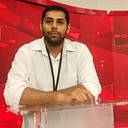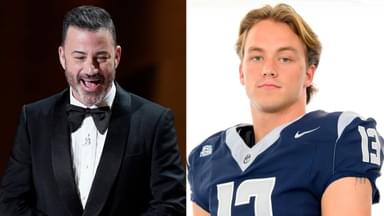In the ever-evolving landscape of college sports, the NCAA has taken yet another hit. The introduction of NIL (Name, Image, and Likeness) rights has already dismantled the foundation of the NCAA’s long-standing amateurism model.
Advertisement
Now, in a further blow to the organization, the NCAA and the Power Five conferences (ACC, Big 12, Big Ten, Pac-12, and SEC) have agreed to terms in the Grant House vs. NCAA lawsuit. A federal judge has officially approved the $2.8 billion antitrust settlement, marking a significant turning point in the governance of college athletics.
Since 2021, NIL payments through third-party collectives have allowed schools to indirectly compensate their athletes. Now, with this latest development, schools can legally pay players directly under NIL guidelines, while the existing collectives continue operating alongside this new system. It marks a monumental shift in the landscape of college athletics.
Reactions to this landmark decision have poured in from across the college sports world, and Paul Finebaum was quick to weigh in. The longtime analyst didn’t hold back, calling it the final nail in the NCAA’s coffin. According to Finebaum, the NCAA has a history of resisting change and wielding immense power over colleges and student-athletes. It is nothing more than a tournament organizer.
He emphasized that the NCAA no longer holds any real authority over college sports. However, Finebaum also cautioned that this new system won’t benefit everyone. The settlement requires schools to contribute to a centralized pool to pay athletes, a system that will only widen the financial gap between powerhouse programs and smaller programs.
“I couldn’t help but think about ten years ago when Mark Emmert essentially said college athletes will be paid over my dead body. He is still alive, but the NCAA is dead. This was supposed to level the playing field. Everyone pays the same into the kitty and then divies it up. But it will do anything but. The big will get bigger, and small schools will simply slip away. It’s going to be big schools on top and the rest of the college athletics is going to suffer.”
Women’s sports, despite their recent and rapid growth, could be among the hardest hit. As athletic departments divide up limited resources, Finebaum believes men’s football and basketball will continue to receive the lion’s share, leaving women’s sports underfunded and marginalized in the process.
Top college athletes were already cashing in through NIL deals, and with schools now allowed to pay them directly, their earnings will go through the roof. In the first year under the new model, schools will divide roughly $21 million among all their athletes. But with some quarterbacks commanding upwards of $2 million per season, they will consume a significant portion of this pool, along with a few other top talents.
Still, this marks a historic shift—one that moves college sports closer to fairly compensating athletes for the revenue they help generate.
That said, schools must be strategic. If the majority of this $21 million ends up in the hands of football and basketball players, it could undermine the system’s broader goals. While NIL collectives continue to play a role, schools need to collaborate to ensure they don’t exhaust their limited resources on just a few star athletes.
Sharing the financial burden to retain top talent would help maintain balance, ensuring athletes from smaller programs and less-publicized sports, who haven’t benefited as much from NIL, also receive their fair share.








